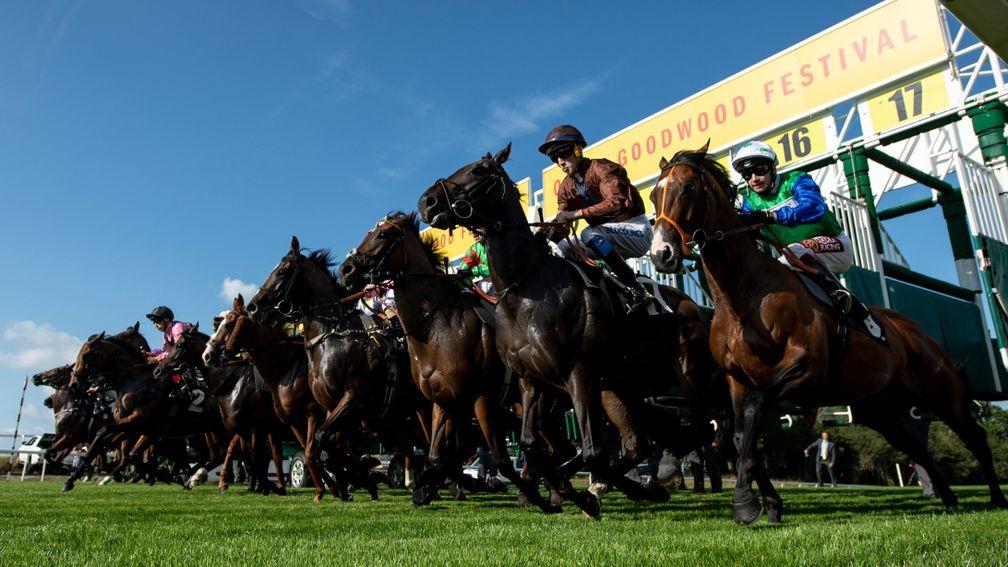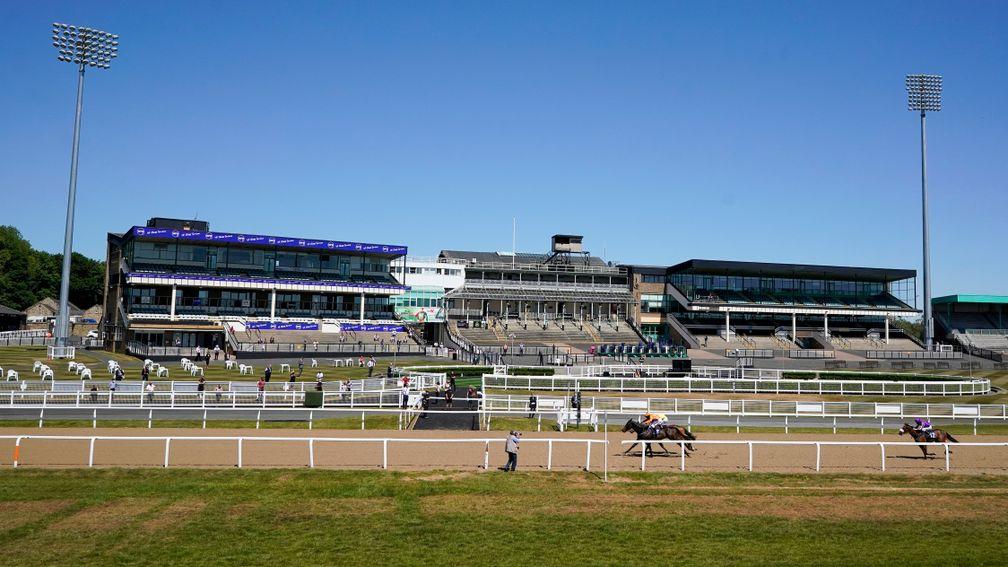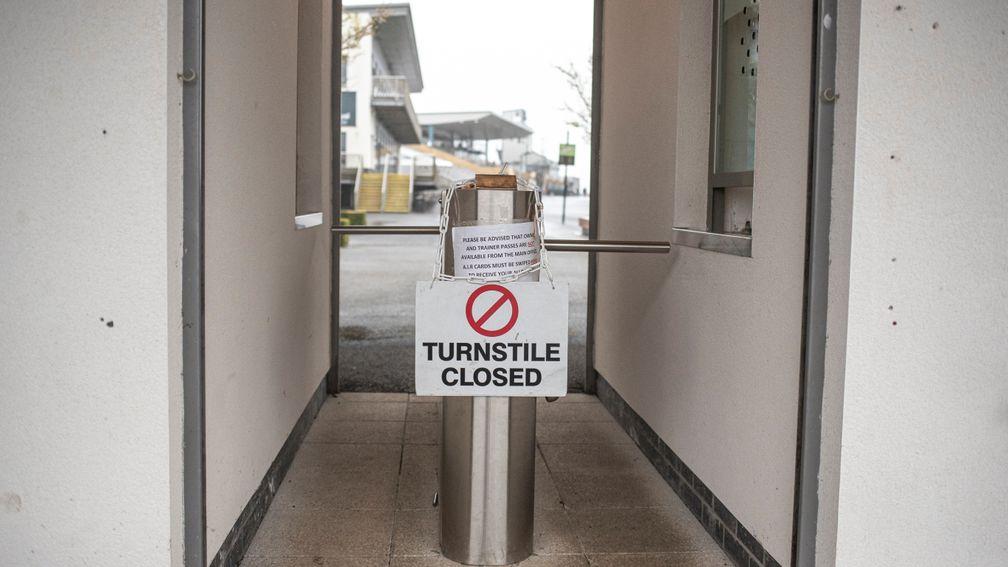Racing is heading for a catastrophe - here’s what we must do to avoid it

Prominent owners Jon Hughes, head of Owners for Owners, and Ged Shields give a dire warning about what could lie in store for the sport in the wake of Covid-19 and what should be done to mitigate potentially disastrous consequences
A hard rain is about to fall on our sport from the economic storm, triggered by the pandemic, and will continue for several years. It will rip through the weakest parts of the racing pyramid and sink without trace many trainers, breeders, owners, syndicators, betting shops and some racecourses. The pandemic is acting as a kind of time machine, rushing racing's outmoded business models to the end phase of a process that was always likely to happen.
Many staff will lose their jobs and equine welfare challenges increase as racehorses are retired, sold or moved on. No part of the industry will go untouched and the only question to be answered, in time, is the scale of contraction.
Why are we so depressingly confident in this assertion? Since the resumption of racing on June 1 we have spent five weeks researching the sport's economic map and the financial interconnections of the supply chain from breeders to bookmakers.
We have reflected on our own investment in the sport and the way we are currently being treated. We have been committed owners since 2004 with 132 winners so far and a current involvement in 39 horses covering everything from Flat to jumps, sole ownership to syndicates and foals to veterans. We use ten trainers across Britain and ownership is by far the major drain on our discretionary expenditure. We will inevitably be part of the contraction that is coming but will do everything possible to mitigate its impact.
How far we personally retrench will be determined by how well racing's leadership handles the next phase of the crisis and whether they are prepared to drive through a number of long-overdue changes to the sport.
We've highlighted our own agenda for action containing five strategies and 20 specific recommendations reflecting our data-driven analysis of the sport – A Blueprint for Racehorse Ownership in the UK: making retention and acquisition of owners the number one goal of a racing recovery plan. It can be downloaded from the ownersforowners.co.uk home page.
Why did we produce it? Because of our deepening concern that the post-pandemic economic impact, racing's tendency for stakeholders to fall out and fight each other rather than focus on the task ahead, and the frustration of owners at how they are treated will lead to a significant contraction in ownership with a hugely damaging impact on the industry.

Encouragingly, we were impressed by the 100-day stakeholder truce and the collaborative approach adopted by the Resumption of Racing group before normal hostilities returned. Huge changes to the Pattern, fixture list, prize-money allocation and safety procedures were adopted. We applaud their efforts and feel it is vital that racing extends this endeavour to a new Recovery of Racing group focused on the retention and acquisition of owners as the top priority. They should consider carefully our blueprint's headline messages below.
Learn from the last financial crisis
Without a Recovery of Racing plan, contraction in ownership and horses in training will be far worse than after 2008-2009 when there was a straight decline in numbers for seven years. We predict a loss of 20 per cent of owners (2,244) and 15 per cent of horses (3,531): an immediate financial impact of £124 million.
The damage is done by the multiplier
For every £1 spent by owners, £7 is generated across the industry for bookmakers, breeders, sales houses, trainers and racecourses. This multiplier amplifies the £124m loss to racing to a significantly more damaging £868m.
Owners bankroll the sport
In 2019-2020 they spent £527m on training fees and lost a collective £428m. This excludes the £145m spent (and mostly lost) on bloodstock (excluding horses in training sales). For every pound spent on training fees the median return was 8p on the Flat and 6p for National Hunt. It will be even worse in 2020 as prize-money declines further. This is unsustainable and increasingly drives owners out of the sport.
The trend is not racing's friend
Racing faces strong headwinds this decade due to economic contraction, owner demographics and the need to rebuild personal and company balance sheets. The average age of owners is over 60 with substantial numbers over 70. Most are extremely concerned about Covid-19 and wary of going racing. This inhibits further any desire to continue investing in racehorses.

Be radical in response
Racing needs a recovery plan that retains and attracts owners as the prime goal for the next five years. There is no time to lose. Racing can address this in one of two ways. Option one is to deny the scale of the challenge, massively underestimate its impact, muddle through with divided leadership, claim that it is already doing things and avoid making difficult decisions, keeping fingers crossed and hoping the 'old normal' returns soon. It won't.
Option two is to embrace radical change, form a coalition of all the stakeholders and drive forward wide-ranging responses that create the 'next normal'. We urge British racing to adopt option two. It is not short of the talent to do this, but they tend to operate in isolation and seem focused on narrow stakeholder interests that are often in competition with the others.
Stakeholders need to come together, put their disputed issues on the table and find sufficient common ground to implement the necessary initiatives, such as those outlined in this blueprint. We have made our call to arms and now challenge the industry to develop and communicate a Recovery of Racing plan within the next 100 days.
Read more:
David Jennings: why did jockeys mess up the Derby? Because they couldn't risk being 'the eejit'
Dylan Hill: own goals by other sports show how brilliantly racing has done
Richard Forristal: racecourses should open their doors soon
Members can read the latest exclusive interviews, news analysis and comment available from 6pm daily on racingpost.com
Published on inComment
Last updated
- We know that times are tight - but racecourses really do need to step up and improve outdated weighing rooms
- The budget has heaped even more trouble on racing - and I fear many trainers will now decide the numbers just don't add up
- Why I think Cheltenham Festival handicaps need to change - JP McManus writes exclusively for the Racing Post
- No-one has ever emerged from the womb wearing a trilby - racing's future survival hangs on pursuing a young audience
- Four score and ten just a number to Peter Harris as July Cup triumph shows there's more to the elderly than medical conditions
- We know that times are tight - but racecourses really do need to step up and improve outdated weighing rooms
- The budget has heaped even more trouble on racing - and I fear many trainers will now decide the numbers just don't add up
- Why I think Cheltenham Festival handicaps need to change - JP McManus writes exclusively for the Racing Post
- No-one has ever emerged from the womb wearing a trilby - racing's future survival hangs on pursuing a young audience
- Four score and ten just a number to Peter Harris as July Cup triumph shows there's more to the elderly than medical conditions